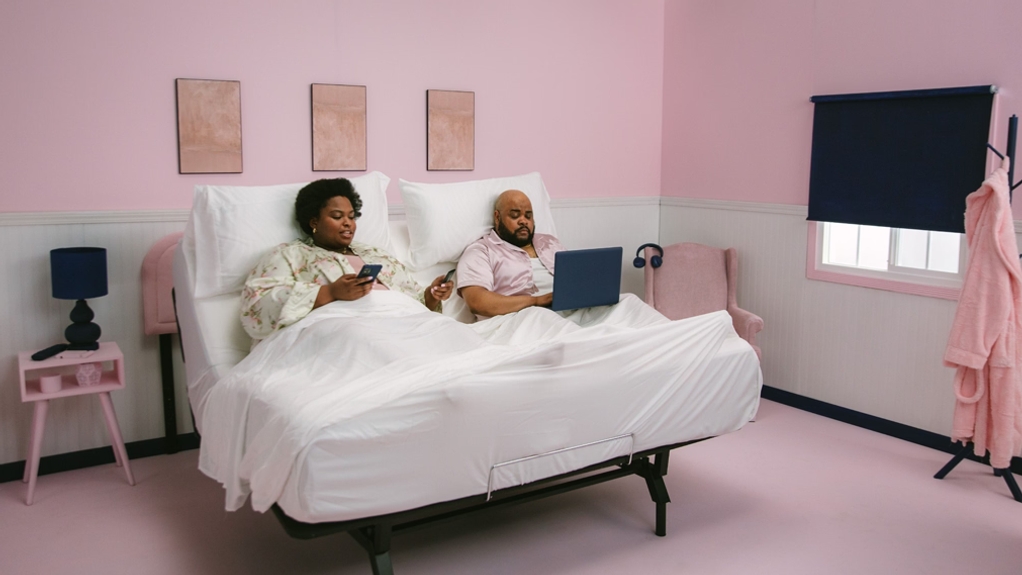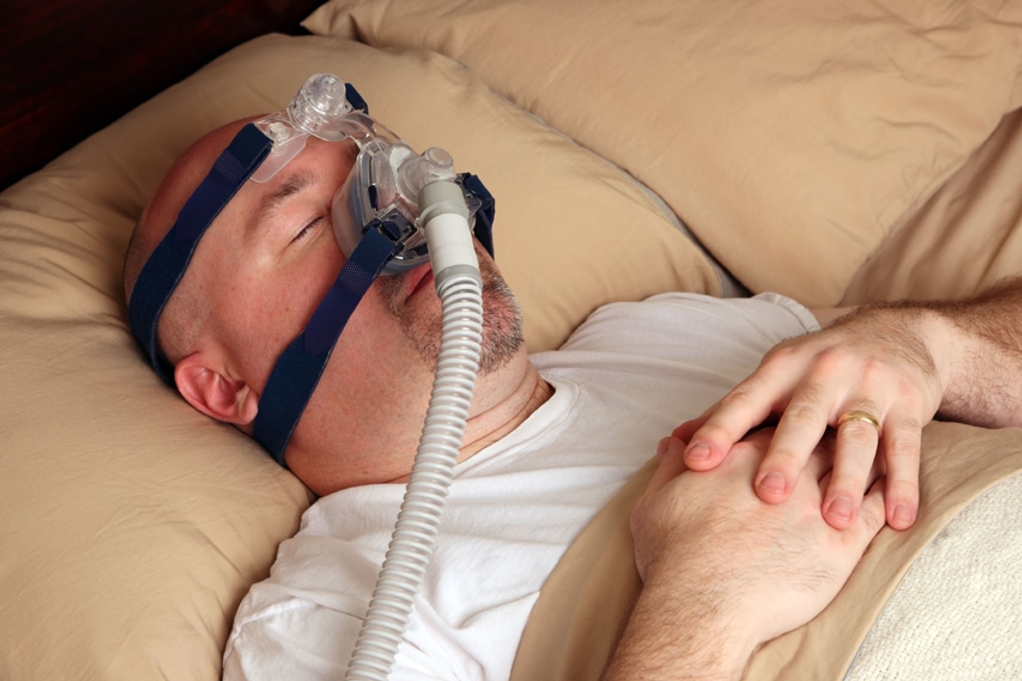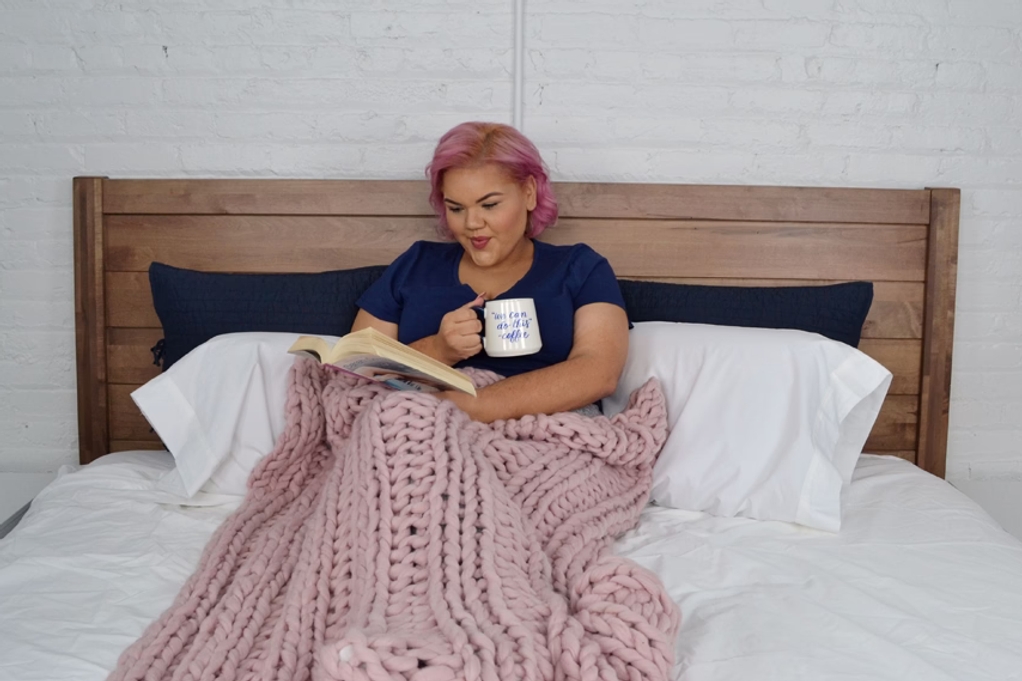Getting out of bed can feel like a struggle on a good morning, let alone when you wake up with a pounding headache (Coughing at night is no picnic either!). According to the Sleep Foundation, approximately one out of every thirteen people regularly experience morning headaches. Interestingly enough, they typically affect women more than men — but that’s not to say that dudes aren’t affected either! You may wake up with a throbbin’ noggini for several reasons, but luckily, there are solutions to help you out. Let’s get into it so you can get out of bed feeling refreshed as often as possible.
Why Am I Waking Up With Headaches?
If you're struggling to understand why you're waking up with headaches, don't hesitate to consult your doctor. However, if you're keen on doing some detective work yourself, here are some of the most common causes to consider.
Poor Sleep Posture
Sleeping position is a personal preference, and choosing the best one for you is vital for getting a good night’s sleep. Snoozing in an awkward pose or using an unsupportive pillow can strain your neck and spine, leading to headaches upon waking.
Sleep Apnea
Sleep apnea is a common sleeping disorder linked to breathing that repeatedly stops and starts when snoozing. It can cause frequent sleep disruptions and headaches due to oxygen deprivation and disrupted sleep patterns.
Dehydration
Not drinking enough water can cause a headache even when you’re awake, but if you are experiencing throbbing temples in the morning if you’re not drinking enough h2O before getting some shuteye.
Poor Sleep Hygiene
Inconsistent sleep schedules or poor sleep quality can lead to headaches. Research has shown that a cluttered bedroom, insufficient room temperature, dirty sheets, and spending too much time in front of the screen close to bedtime can also lead to another sleep disorder, insomnia, which affects approximately 30 percent of adult Americans.
Sinus Issues
Sinus congestion or infections can lead to headaches, which often feel worse in the morning due to fluid accumulation while sleeping.
Teeth Grinding
Teeth grinding at night (aka bruxism) is often linked to stress or misalignment, which can strain your jaw muscles and lead to tension headaches.
Stress and Anxiety
A 2024 poll from the American Psychiatric Association revealed that U.S. adults are feeling increasingly anxious. In 2024, 43 percent of adults say they feel more anxious than the previous year, up from 37 percent in 2023. High stress levels can lead to tension headaches, which may be more noticeable in the morning due to accumulated tension.
7 Ways to Stop Waking Up with Headaches
The goal of getting those crucial seven to nine hours of sleep each night is to wake up feeling fresh and ready to face the day so nobody has time for a headache! Here are seven preventive measures you can take to try to avoid feeling groggy and uncomfortable as soon as you crack an eye open.
Improve Your Sleep Posture
Improving your sleep posture can make a big difference in how your head feels in the morning. Ensure your pillow supports your head and neck correctly. Your head should be aligned with your spine, not tilting too far forward or backward. Our Big Fig Adjustable Pillows, with their removable filling for easy modification, provide the perfect pillow height and alignment. For fuller-figured side sleepers, our Body Pillows offer the ideal level of support.
Get a Handle of Your Sleep Apnea
Treating sleep apnea effectively involves a combination of lifestyle changes, medical treatments, and sometimes more advanced surgical interventions. In this case, it’s best to speak with your doctor to determine your best option.
Drink Enough Water
Experts agree that men should drink approximately 15.5 cups of water daily and ladies about 11.5 cups. Carrying around a reusable water bottle makes it easier to achieve your goals. Set hydration goals, infuse your water with yummy fresh fruits, and make an effort to drink a full glass before each meal.
Create a Healthy Sleeping Environment
Your sleeping environment plays a crucial role in the quality of your sleep. Therefore, it's important to keep it conducive to rest. This means clearing the clutter, investing in blackout shades, washing your sheets weekly, and maintaining the optimal sleeping temperature of 65 degrees. Also, try to disconnect from electronics at least an hour before bedtime. Instead, engage in a relaxing bedtime ritual such as reading, taking a bath, or brewing a cup of herbal tea.
Treat Your Sinus Issues
Treating sinus issues while sleeping can help you rest better and reduce discomfort. Use extra pillows to elevate your head, stay hydrated, invest in a humidifier, try a saline nasal spray, avoid allergens, and consider over-the-counter or prescription meds if needed.
Stop Grinding Your Teeth
Visit your dentist to get a custom-fitted night guard. This handy device helps protect your teeth from grinding and can reduce the strain on your jaw. Also, be mindful of jaw tension. Try performing exercises to relax and strengthen the jaw muscles, which can help relieve tension and grinding. If misalignment of your teeth or jaw contributes to your grinding, consult your dentist or orthodontist for more advanced treatment options.
Get a Grip on Your Stress
It's crucial to prepare your body for restful sleep. Practice stress-reducing techniques such as deep breathing exercises, meditation, or progressive muscle relaxation. It can also be useful to create a calming bedtime routine to reduce stress. Also, remember to limit caffeine and avoid heavy meals or alcohol close to bedtime, as both can contribute to teeth grinding.
Stop Morning Headaches with a New Big Fig
A good night’s sleep to ensure you don’t wake up with headaches starts with a quality mattress like the Big Fig! Even support, pressure relief, and our Thermogel Cooling® Technology to help prevent gross night sweats help make for sweet dreams and good mornings.
Waking up with morning headaches can be frustrating, but addressing the underlying causes through a combination of lifestyle changes and, if necessary, medical treatment can help alleviate — if not eliminate — your frustrating a.m. aches!







